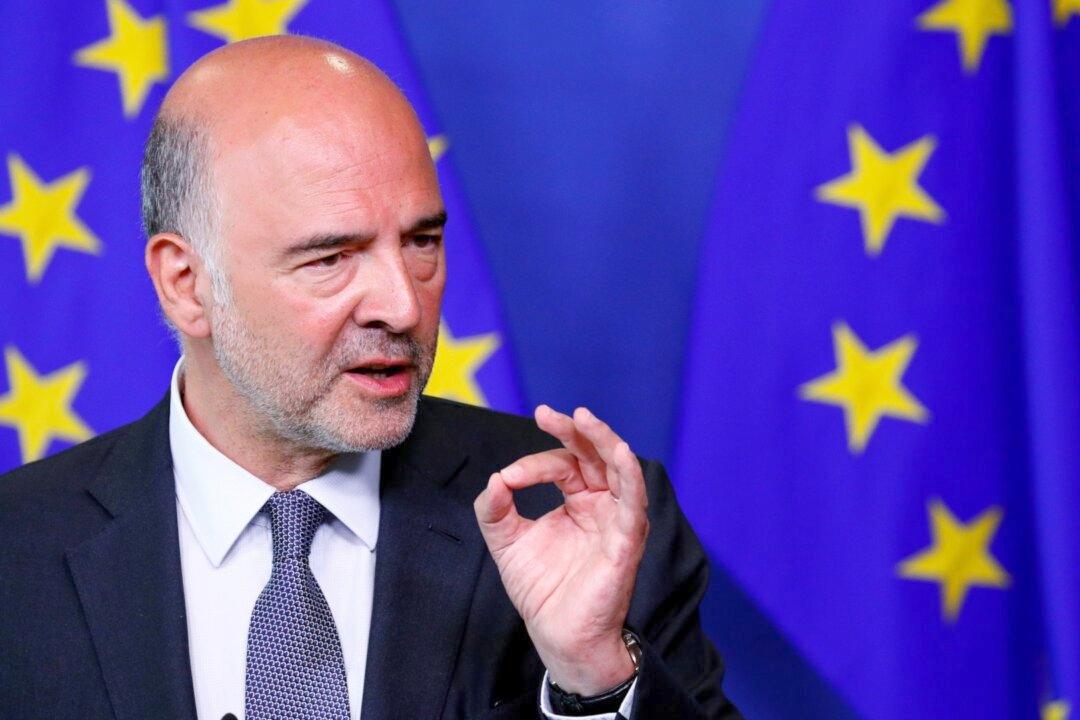BRUSSELS—The European Union adopted a nonconfrontational stance toward Italy on Sept. 27, after Italy defied Brussels and surprised markets with plans for a large budget deficit, but may take a more aggressive line if Rome sticks to too bold targets.
Italy’s eurosceptic government targeted for the next three years a budget deficit of 2.4 percent of GDP which would imply no debt reduction against requirements to cut it.





